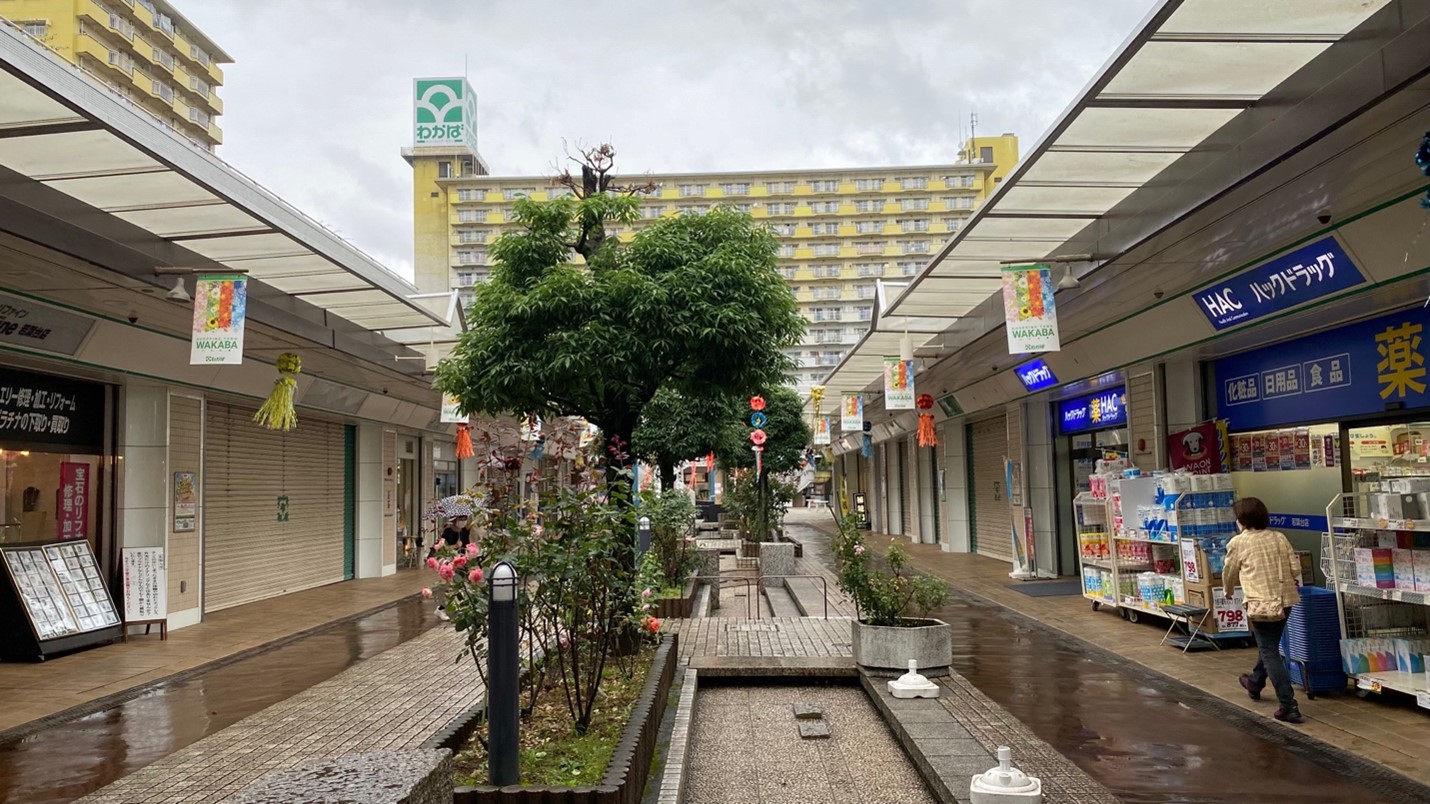June 21, 2024
 Rainy but excited, our trip to Wakabadai Danchi was the culmination of our 2-week travel to Japan. Wakabadai Housing Complex, located on the outskirts of Yokohama, is home to more than 13,000 residents in more than 6,000 households as of 2023. Developed in 1979 by the Kanagawa Prefecture Housing Supply Public Corporation, Wakabadai was built on the concepts of harmony with nature, respect for humanity, and response to increased leisure time and has become a model for intergenerational housing, promoting physical activity and social engagement.
Rainy but excited, our trip to Wakabadai Danchi was the culmination of our 2-week travel to Japan. Wakabadai Housing Complex, located on the outskirts of Yokohama, is home to more than 13,000 residents in more than 6,000 households as of 2023. Developed in 1979 by the Kanagawa Prefecture Housing Supply Public Corporation, Wakabadai was built on the concepts of harmony with nature, respect for humanity, and response to increased leisure time and has become a model for intergenerational housing, promoting physical activity and social engagement.
Wakabadai provides a safe and accessible place in which residents can thrive with the support they need as they advance into the later years of their lives. The clinics and the Community Care Plaza offer comprehensive services and support from nurses, social workers, care managers, and volunteers. Seasonal events and regular social/physical activities promote the social connectedness of older residents. Active volunteerism provides opportunities for older adults to give back to society and find meaning and purpose in life, which aligns with the concept of Ikigai (i.e., a sense of life worth living). Spaces such as Himawari, Sorameme, and Wakka, run by resident-led organizations, are designed to facilitate intergenerational interactions and to support their well-being.
At Wakabadai, we saw many aspects of the key paradigms of gerontology—supporting the biopsychosocial well-being of older adults from a life course perspective—come to life. It is heartening to see how, in a place where 54% of the residents are older adults, the principles we learned in gerontology come into play to enable residents to live socially connected, meaningful lives in their later years. The Global Health Aging in Japan course has been the highlight of my education in gerontology!
Yoon Chung Kim, MHS, MS
PhD Gerontology Candidate
UMB & UMBC